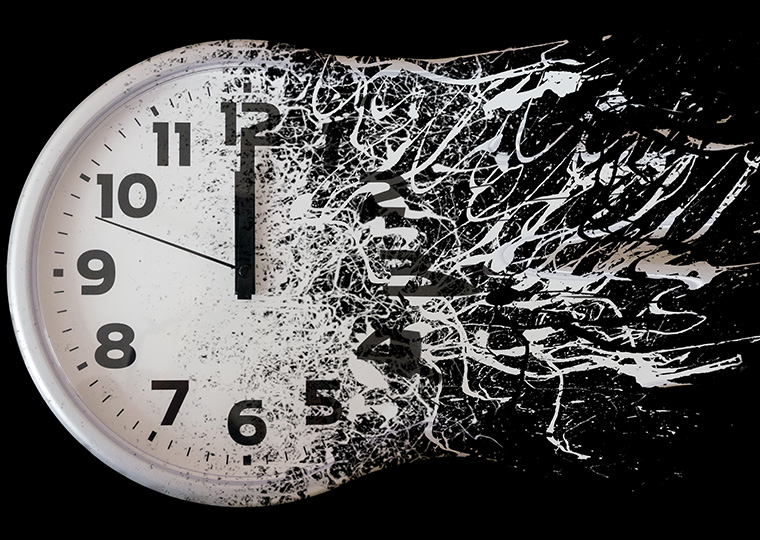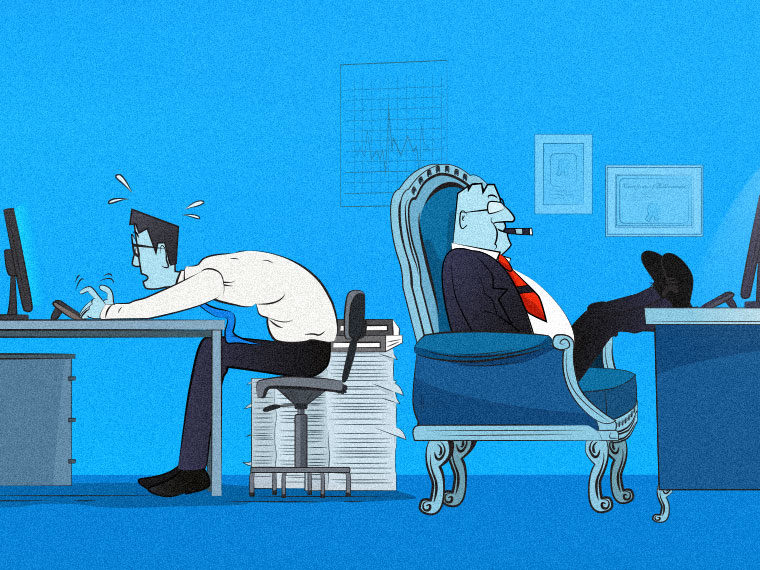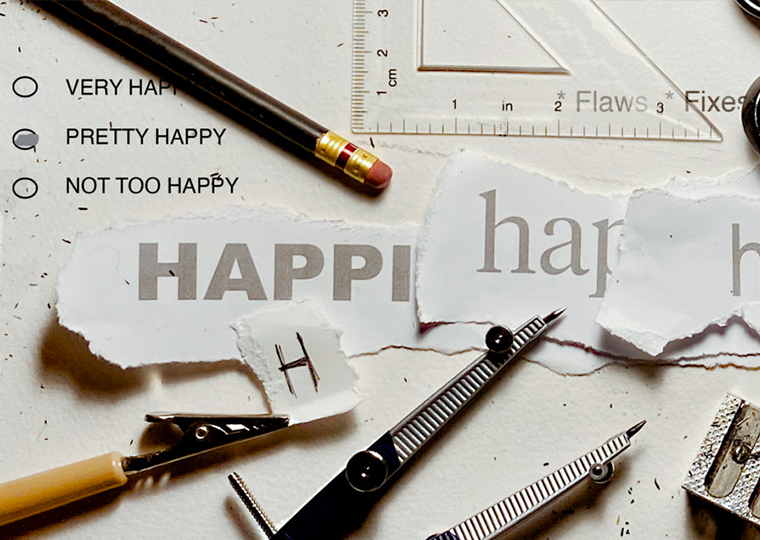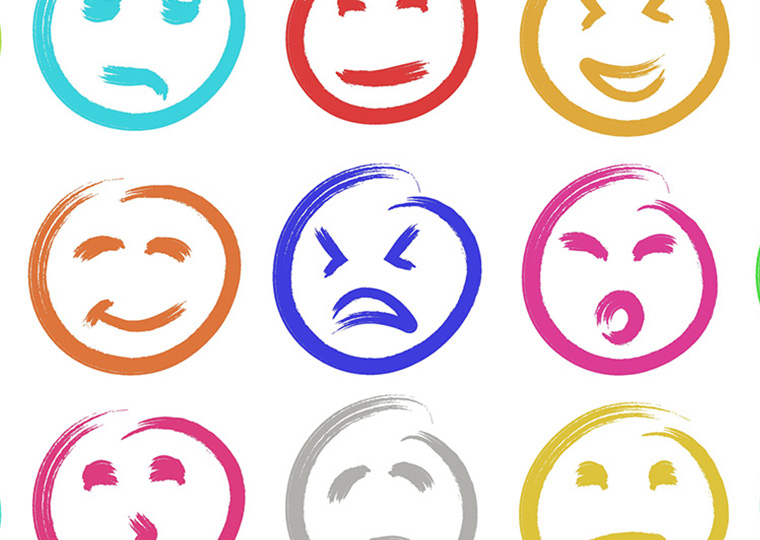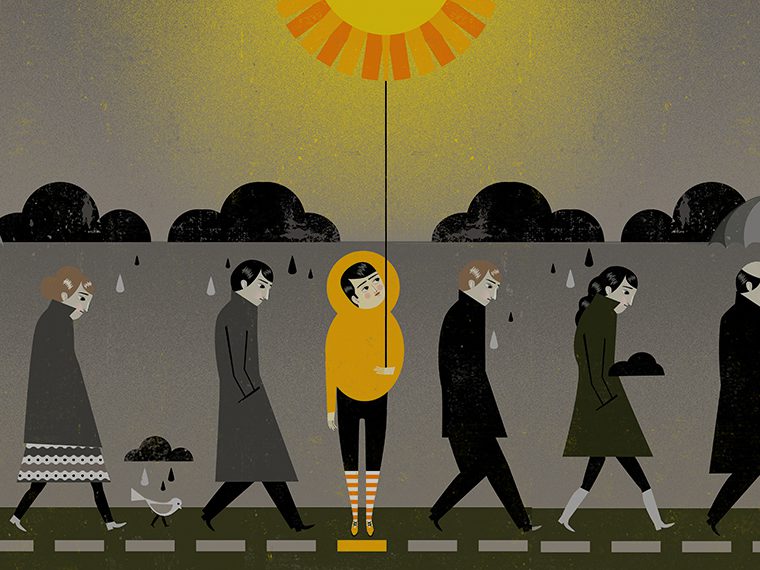Happy memories of life-stage transitions can be bittersweet
To reminisce is to reach into our memory bank and gift ourselves the emotional upside of remembering a happy time.
Yet there seems to be an unintended consequence.
Opt In to the Review Monthly Email Update.
In a paper published in the journal Emotion, University of Tennessee’s Jeff T. Larsen, UCLA Anderson’s Hal E. Hershfield, California Retina Consultants and Research Foundation’s James L. Cazares, and Stanford’s Candice L. Hogan and Laura L. Carstensen show across three experiments that reflecting on good times raises the odds we’ll also feel a bit sad.
Good Memories Are Not All Goodness and Light
It seems that reminiscence, especially at the end of portentous life stages — college graduation, for example — tends to be bittersweet.
“Simply thinking about good times from the past can elicit mixed emotions,” the authors write.
More than 20 years ago, research by Larsen established that reflecting on good times can be a mixed emotional bag. That set off a slew of other mixed emotion research, including Hershfield’s 2008 paper that suggested reminiscing at a pivotal life-stage change (e.g., college move out and graduation days) triggers mixed emotions because it acknowledges the end of an experience. Hershfield’s research built on prior work by Carstensen, who developed a theory that when we are at the end of a life chapter, it heightens our awareness of our mortality.
This new research investigated what might be causing the mixed emotion response when reflecting on a good time. The authors suggest that it is in fact the act of reminiscence — especially about an experience that can’t be replicated — that sadness is apt to sidle up next to happiness.
Sweet Sorrow in Action
In one study, more than 320 Stanford students were asked if they were feeling happy and or sad; anyone replying yes was then asked to quantify on a scale of 1 to 7 their level of that emotion. Participants included undergrads who were still in school and seniors on graduation day.
The emotional peak of graduation day triggered more happiness (4.85 average score) and sadness (1.61) for the graduates, than what undergrads experienced on a random given day (average happy score of 4.3 and a sad score of 0.60).
The graduates also reported having spent more time reminiscing on past good times on their big day, and the researcher’s analysis showed that looking back on happy experiences seems to trigger more time spent reflecting on the sad times as well. The researchers’ analysis of additional data collected in this experiment found that the propensity to experience mixed emotions was three times greater for the graduates than the students.
A second study found a similar dynamic at play even when the reminiscence isn’t occurring amid a big life-stage pivot or event. More than 130 college undergrads were asked to reflect on a good time had in high school, and to conjure up a neutral memory and to rate their happiness/sadness on a scale of 1 to 6.
Once again, reflecting on a happy experience seems to trigger not only more intense feelings of happiness but also sadness. Participants reminiscing on a past enjoyable experience were more prone to the bittersweet (3.52 average happy score, 0.95 sadness score) than when they reflected on a neutral experience (1.08 happy, 0.44 sad). When reminiscing about an enjoyable experience, the level of mixed emotions was more than double the level when reminiscing about an emotionally uneventful experience, suggesting a more causal relationship between reminiscing about good times past and the likelihood that induces a bittersweet response.
In another study, more than 120 college undergrads were put through the same high-school reminiscence exercise, with a twist. In addition to the neutral memory, participants were asked to think about a past enjoyable experience that can’t be repeated (e.g., first kiss, prom), and a past enjoyable experience that they are likely to be able to recreate going forward (ex. going to the movies, or a concert). Building on Hershfield’s prior research that meaningful endings trigger more intense emotional feelings, the experiment found that recalling nonrepeatable enjoyable experiences elicited more happiness and sadness than recalling repeatable or neutral experiences, and those once-in-a-lifetime experiences also led to higher mixed-emotion scores.
In taking in the good memories, especially those that can’t be replicated, we need to accept that those happy reflections may also conjure up the less happy as well. As the authors note there seems to be a “double-edged sword of reminiscence on good times.”
Featured Faculty
-
Hal Hershfield
Professor of Marketing and Behavioral Decision Making
About the Research
Larson, J.T., Hershfield, H.E., Cazares, J.L., Hogan, C.L. & Carstensen, L.L. (2021). Meaningful Endings and Mixed Emotions: The Double-Edged Sword of Reminiscence on Good Times. Emotion, 21(8), 1650-1659. doi:10.1037/emo000101

